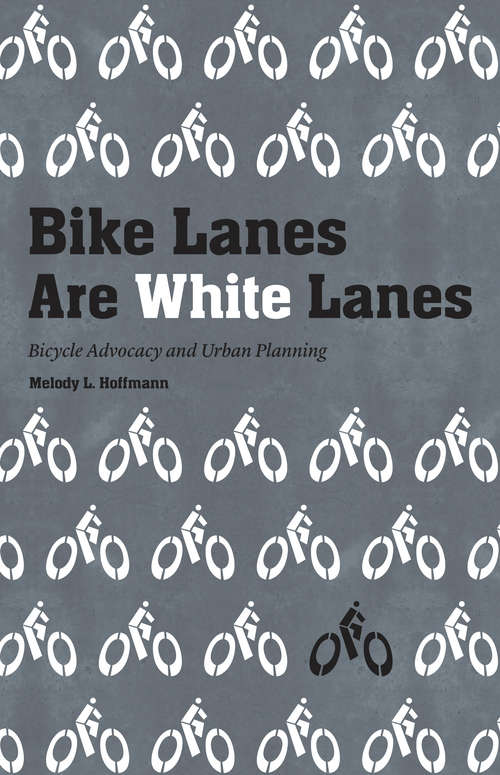Bike Lanes Are White Lanes: Bicycle Advocacy and Urban Planning
By:
Sign Up Now!
Already a Member? Log In
You must be logged into Bookshare to access this title.
Learn about membership options,
or view our freely available titles.
- Synopsis
- The number of bicyclists is increasing in the United States, especially among the working class and people of color. In contrast to the demographics of bicyclists in the United States, advocacy for bicycling has focused mainly on the interests of white upwardly mobile bicyclists, leading to neighborhood conflicts and accusations of racist planning. In Bike Lanes Are White Lanes, scholar Melody L. Hoffmann argues that the bicycle has varied cultural meaning as a “rolling signifier.” That is, the bicycle’s meaning changes in different spaces, with different people, and in different cultures. The rolling signification of the bicycle contributes to building community, influences gentrifying urban planning, and upholds systemic race and class barriers. In this study of three prominent U.S. cities—Milwaukee, Portland, and Minneapolis—Hoffmann examines how the burgeoning popularity of urban bicycling is trailed by systemic issues of racism, classism, and displacement. From a pro-cycling perspective, Bike Lanes Are White Lanes highlights many problematic aspects of urban bicycling culture and its advocacy as well as positive examples of people trying earnestly to bring their community together through bicycling.
- Copyright:
- 2016
Book Details
- Book Quality:
- Publisher Quality
- ISBN-13:
- 9780803288201
- Related ISBNs:
- 9780803276789
- Publisher:
- UNP - Nebraska Paperback
- Date of Addition:
- 04/20/18
- Copyrighted By:
- University of Nebraska Press
- Adult content:
- No
- Language:
- English
- Has Image Descriptions:
- No
- Categories:
- Nonfiction, Social Studies, Politics and Government, Sociology
- Submitted By:
- Bookshare Staff
- Usage Restrictions:
- This is a copyrighted book.
Reviews
Other Books
- by Melody L Hoffmann
- in Nonfiction
- in Social Studies
- in Politics and Government
- in Sociology
